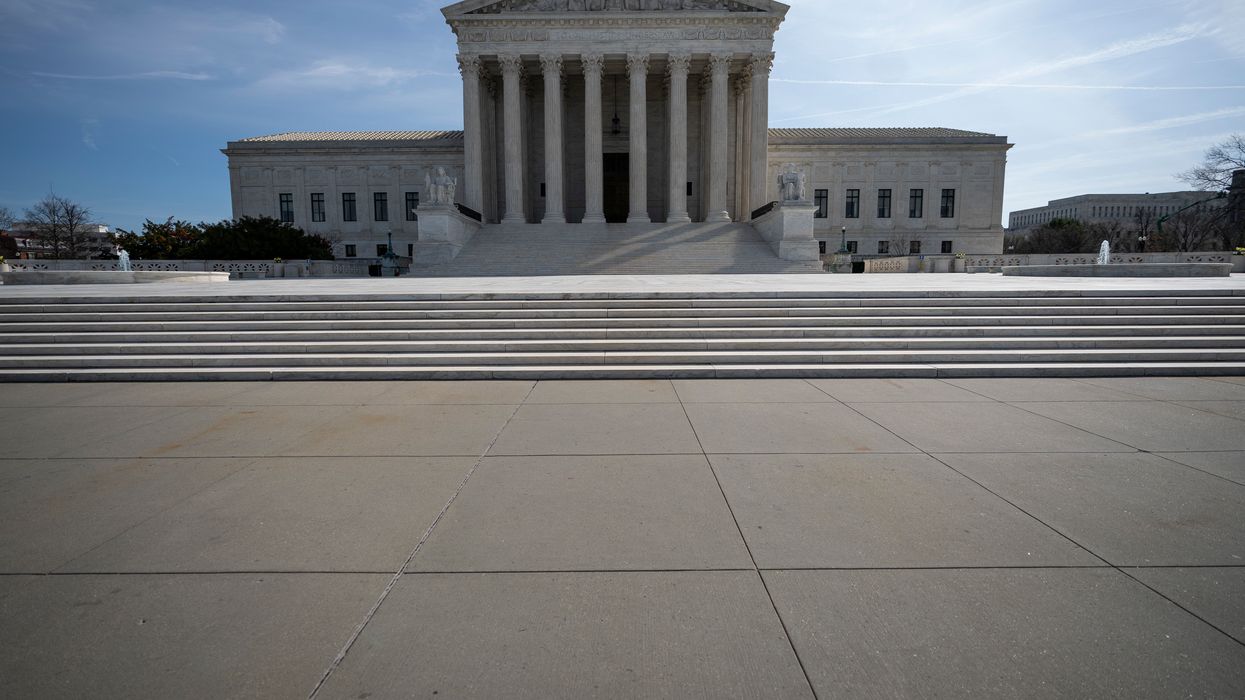The death of Justice Ruth Bader Ginsburg has unleashed calls for institutional overhauls to expand the size of the Supreme Court or limit the time justices can serve — as well as outright threats to pack the bench, depending on who controls the Senate and the White House after November's election.
But the Supreme Court is not the problem.
The fresh cries to "fix the court" are ironic at best and hypocritical at worst. They echo the calls to "impeach Earl Warren" that rang out in the 1950s, after that chief justice wrote the unanimous Brown v. Board of Education decision that declared segregated schools unconstitutional.
Then, as now, the problem was not the nation's high court. It was the septic politics — then of segregation, now of raw partisan division — that infected the country.
Back in the 1960s and 1970s, reactions to septic politics were similar to today's calls to fix the Supreme Court. Instead of ostracizing its members who had perpetuated segregation, Congress reorganized the seniority system and created a multitude of new committees and subcommittees. Instead of taking a stand against segregationist senators and House members — other than rejecting their ideology to enact landmark voting rights and civil rights legislation — Congress replaced a few of the committee fiefdoms they'd controlled with a multitude of new ones. And that made Capitol Hill a much more difficult place to lead or control. So politics remained septic.
Similarly, to "fix" the electoral system, Congress enacted campaign spending laws that essentially privatized the election process and set in motion the forces that now make elections extraordinarily expensive, uncompetitive and gerrymandered to perpetuate control by the two major parties.
Instead of bridging political divisions, Congress enacted institutional reforms that simply proliferated the number of divisions and deepened them. The two major parties are as polarized as ever, more internally divided than ever -- and still comfortably ensconced in power thanks to campaign finance laws that discriminate against third parties and independent candidates.
As Jonathan Rauch of the Brookings Institution has written, the nation continues to pay the price for these so-called reforms. They created the political system that enabled Donald Trump to beat the Republicans and then beat the Democrats. It remains possible he could do it again this November. "Fixing" the Supreme Court by limiting tenure or adding seats will do nothing to overcome the political divisions or fix the political machinery that elevated and has sustained the incumbent president.
More likely, any such rushed alterations would have the sort of undesirable and unforeseen consequences that inevitably arise from hastily conceived policies that are driven more by partisan fervor than by wisdom.
So let's leave the Supreme Court alone. Despite the debasement of the confirmation process that began with President Ronald Reagan's failed nomination of Robert Bork 33 years ago, the court still operates collegially and effectively. Despite the complaints about how Republican appointees now dominate the bench, abortion remains a right, the Affordable Care Act has not been struck down, gay marriage is constitutionally protected and employers may not discriminate against people based on gender or sexuality. Perennially, the court receives the highest approval ratings among the branches of the federal government.
Instead of overhauling the Supreme Court, perhaps lawmakers and other aspiring fixers might first give Congress itself some homework. Before turning on the court, perhaps Congress could first demonstrate a capacity to put partisanship aside and pursue an agenda that is unquestionably bipartisan and clearly in the national interest. A better coronavirus testing plan? Perhaps a dollar-a-gallon additional federal tax on gasoline to cut greenhouse emissions and support sustainability research? Maybe a fix for the public schools?
The Supreme Court is not broken. So don't fix it. Instead, Congress should demonstrate that it can choose to fix the politics and policies that need fixing.



















Trump & Hegseth gave Mark Kelly a huge 2028 gift